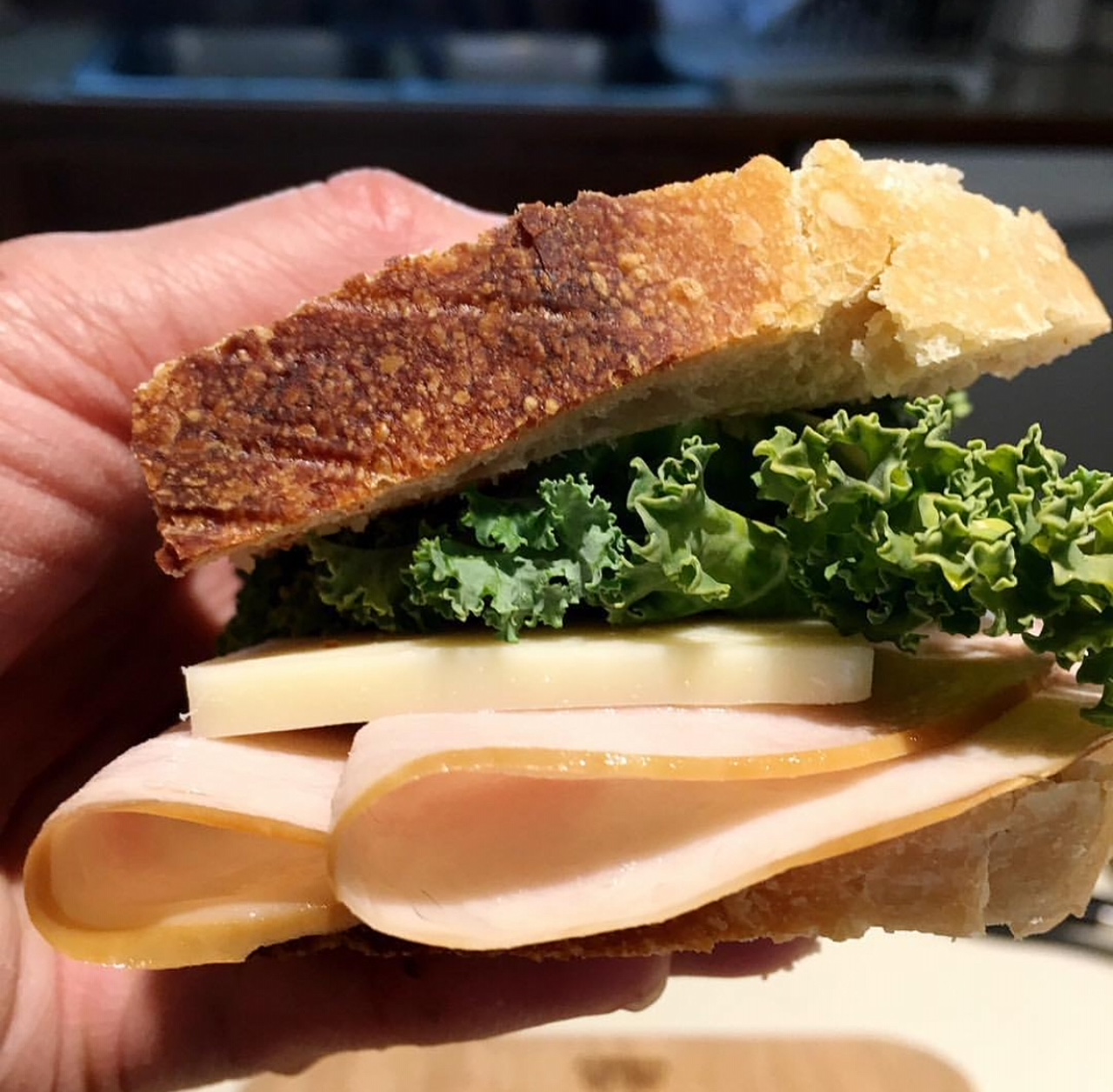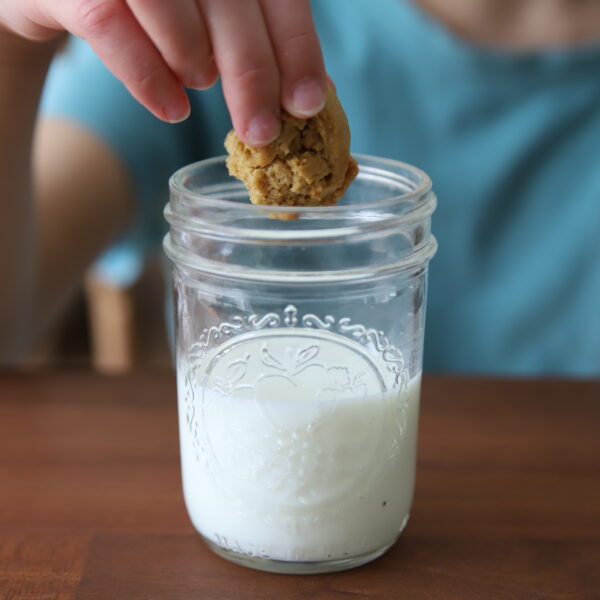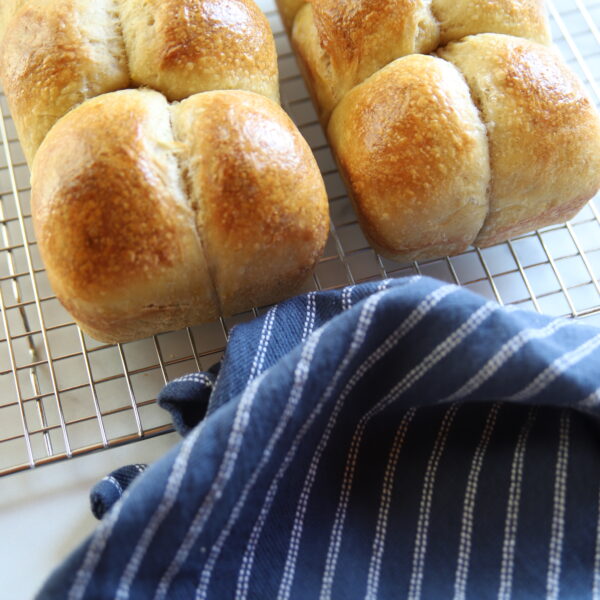
If you follow me on social media, you know that I have a large family with large appetites and they know what they like. (smile) That is one of the reasons why I LOVE to experiment with new recipes and tweak old ones. Call it my love language! Over the years as we transitioned to a more natural lifestyle, my culinary skills grew as well. I learned how to plant from seed, grow our own garden, and how to ferment and preserve our harvest to prepare for winter on the farm.
One of the first homesteading skills I ever learned was how to bake homemade bread. There is something so satisfying about the smell of fresh bread baking in the oven. Learning new homesteading skills became a part of our daily homeschool lessons. The littles and I would imagine that we were living in pioneer times. We would try our hand at making butter, culturing our own yogurt, and fermenting our own kefir grains. Adding fresh homemade sourdough to our culinary repertoire seemed like a natural progression.
If you have used homemade sourdough starter, you know that it can be quite finicky at first, but with some trial and error and A LOT of patience, I grew the confidence to make sourdough on a frequent basis and you can too.
WHY HOMEMADE SOURDOUGH BREAD IS THE BETTER CHOICE
As more and more Americans are joining the growing list of those who suffer from digestive issues, gluten sensitivities, food intolerances, and nutrient deficiencies, an important biblical symbol of LIFE has become one of the most controversial foods of our modern times. Do we eat bread or do we eshew it? That is the question.
Bread has been around for centuries. So, why the bad rap now? Well, this is due in part to how baking practices have evolved over the years. Convenience replaced the healthy ingredients with the artificial and chemically laden versions. Only, in the process of making things “better”, we have lost a lot of the health benefits that used to accompany home cooked meals around the table. Convenience has made us the generation of drive-thru windows and fast “food” meals which have in turn made us more toxic and more sick than ever.
Store bought sourdough is not the same as long fermented dough made from wild sourdough starter. They use commercially made yeast and therefore, store bought sourdough is made in bulk and made fast to keep up with demands. It lacks all the benefits you would receive from the long fermentation process.
HOW SOURDOUGH IS DIFFERENT
Traditional sourdough bread is fermented for periods of 8-12 hours and in some recipes, for longer than 24 hours. The long fermentation process allows for the yeast and bacteria to have time to thoroughly digest the natural sugars and carbohydrates present in the flours. This is why some folks who have gluten issues find that they are able to tolerate sourdough without any flareups or negative issues.
TRADITIONAL GRAINS
Once upon a time, our ancestors prepared their grains by soaking, sprouting, or fermenting the grains to help produce a more nutrient dense and easily digestible final product. Some sourdough starters were passed down from generation to generation. Unfortunately, as mentioned above, we traded in our home cooked meals for our ready-made options. Don’t get me wrong, ready-made options will do in a pinch, but when they are our main staple, that is when we run into those preventable problems that are caused by ingredients made with artificial preservatives, colors, flavors, and loaded with high fructose corn syrup. Thankfully, the naturalists like our family have made simple steps to preserve many of these lost skills and there is a growing movement around the world who are rallying together to do the same.
TASTE THE DIFFERENCE
Sourdough is basically leavened bread without the commercial yeast packets. It is the way our ancestors would have prepared their ancient grains. It is tangier, hence the name “sour” dough. Due to the long fermentation process, it naturally preserves the bread from spoiling quickly, helps make the digestion process easier on your gut bacteria, which leads to your body absorbing more of the healthy nutrients that grains were created to provide.

Try it for yourself and see how your body responds. Check out my favorite sourdough baking essentials and how to craft your own sourdough starter here. Try some of our other fermented food posts here and start exploring the health benefits of a flourishing gut garden.

Disclaimer: The health and wellness posts shared here on GracefullyHome.com are not intended to diagnose, treat, prevent or cure any illness or disease. The information provided on this blog is for general educational purposes, has not been reviewed nor approved by the FDA and is not intended to take the place of advice from your medical professional, licensed dietician or nutritionist.
You are solely responsible for your health care and activity choices. Use of any of the recommendations or helpful tools and tips on the GracefullyHome.com blog does not constitute a client-coach relationship.




Leave a Reply